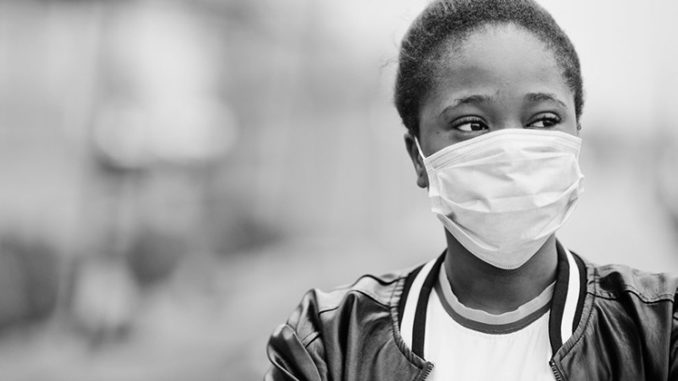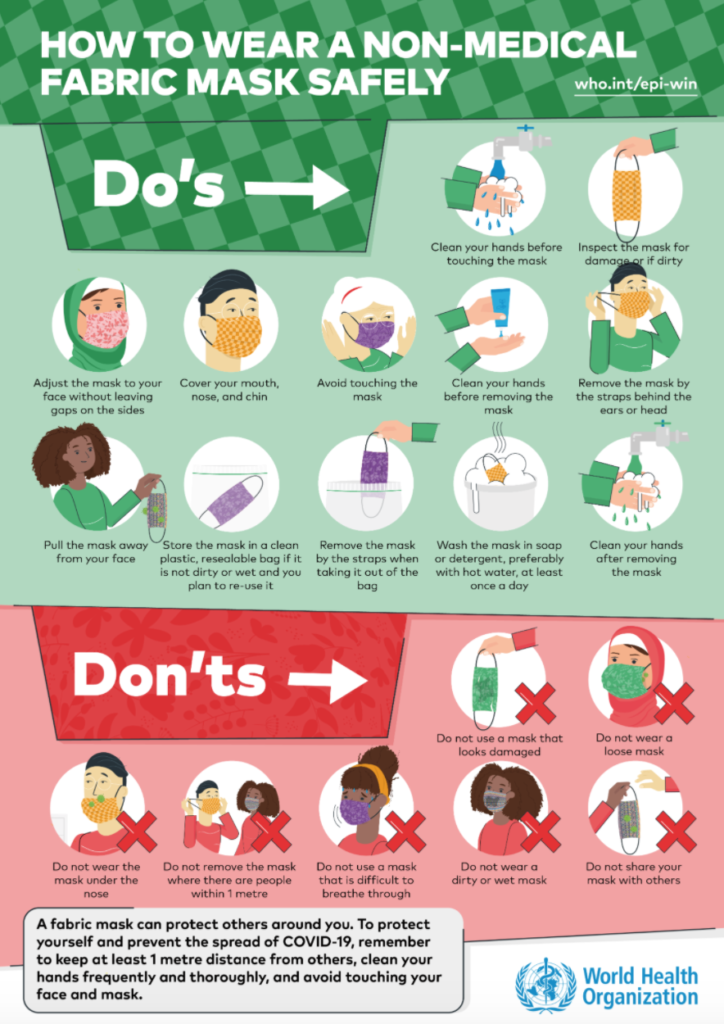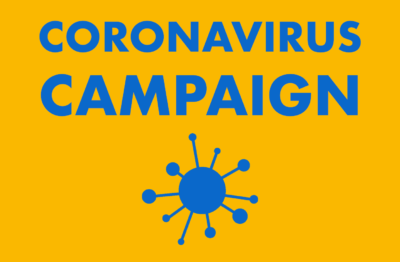
Preventing the spread of Covid-19 among the public is crucial to stopping the NHS from being overwhelmed, and stopping the NHS from being overwhelmed is crucial to protecting the UK public. You can’t have one without the other.
While much of the support for the NHS and its workers has been heartening, it has been getting hard to ignore the increasingly anti-science agenda being promoted on social media across the political spectrum in recent weeks and month. A lack of coherent messaging from the Government from the delayed implementation of lockdown, through to workplace practices, infection control measures and mask wearing has done little to stem the tide. Failure of the public to understand which measures are appropriate to be taken, risks further surges in Covid-19 cases. This could further overwhelm the NHS harm and affect its ability to function as it should.
Where appropriate we have included examples of these myths being spread, to make it clear that they occur in all spheres, and range from genuine misunderstanding through to dog-whistle politics.
Here, we look at ten of the most common and problematic myths, and the facts behind them.
Masks don’t work in the community
It has to be acknowledged that many, including some prominent healthcare professionals, were sceptical about mask use to control Covid19 a couple of months ago.
Face masks are being used a a solution. No evidence for use in community setting & might also detract from what we know works - hand washing. Social distancing. Testing & tracing. Simply as ‘reassurance’ is not good enough.
— Clare Gerada (@ClareGerada) May 13, 2020
Admittedly, there was little available evidence at the time that masks could reduce transmission in the community, as Covid-19 is a months-old phenomenon. Yet still, scepticism continues.
Evidence on harms and benefits of face masks is still uncertain and primary research is still lacking. No impact assessment. Government has decided policy which we must now follow. Important to be honest with public about uncertainty and do the research. @IndependentSage https://t.co/XlJd8OcrnW
— Allyson Pollock (@AllysonPollock) July 14, 2020
However, as of 5 June 2020 the World Health Organisation advised Governments to promote the use of fabric (or non-medical) face masks in public settings, closed settings and public transport. This new advice was based on a meta-analysis of observational evidence, published in The Lancet on 1 June 2020. The meta-analysis looked at studies done on the transmission of coronaviruses in a number of countries including China, Taiwan, the USA, Canada, Vietnam and Singapore.
There have been some concerns over the public's ability to use masks correctly and effectively in community settings. The WHO have issued guidance for the use of fabric face masks in community settings.
Unfortunately the Government have now issued a public health campaign that suggests using face masks with valves is an option. Please follow WHO guidance instead:

Lockdown doesn’t work
Since the beginning, individuals have argued that lockdown is either not going to work or is too damaging to the economy to be justifiable. Keep Our NHS Public argued for a lockdown from mid-March, and for keeping it from mid-May.
“Let us make no mistake about this, we are not going to solve this.”
Dr Sarah Jarvis disputes Caprice's claim that the best thing to do to contain coronavirus would be a two-week lockdown, saying: "It has categorically not worked."@DrSarahJarvis | @TheJeremyVine | #JeremyVine pic.twitter.com/maixn6xbwQ
— Jeremy Vine On 5 (@JeremyVineOn5) March 16, 2020
Lockdowns have in fact been highly effective at minimising the impact of Covid-19 so far. A multi-country study published in Nature in June, showed closing businesses, home isolation and lockdown had clear benefits. In fact, authors hypothesised that emergency measures including lockdowns, had prevented 500,000 Covid-19 infections from occurring globally.
Hand washing doesn't work
Uptake of hand washing in the UK and globally has been high. The public health messaging campaign around this particular issue being one of the few things the Government seems to have got correct.
https://twitter.com/owenjones84/status/1258085414080036865
A country's hand-washing culture has actually been shown to be a relatively effective predictor of the spread of Covid-19.
The advice is changing all the time
People are confusing two different types of 'changing advice'. Scientific advice changes if new information emerges, as we have seen with masks.
However, the UK Government has repeatedly put out conflicting and confusing messaging, such as Michael Gove announcing on Sunday face masks were not going to be made compulsory on national television. Face masks were then made compulsory less than 48 hours later.
The issue is not over advice changing as the science does, the problem is the lack of transparency over how the Government is deciding on its own policies and confusing messaging around them.
The vaccine won't be tested properly
Wariness over the confusing positions taken by the Government on coronavirus has translated to vaccine skepticism for some. There are many claims, but one of the most prominent is that development of a vaccine will be rushed through safety trials, and therefore be unsafe. This is simply not true. In fact, its not legal.
There are many ongoing trials for a Covid-19 vaccine, including human trials, such as that taking place at Imperial College London right now. This trial, and others, will have to go through further, larger trials and then licensed by regulatory authorities before it is made available to the public. Any reported problems will continue to be reviewed on an ongoing basis, so that any risks can be constantly monitored.
If a suitable vaccine against Covid-19 does eventually become available, then it is essential that uptake is as high as possible for it to be as effective as possible, as with most vaccines. Imperial College London has looked at the measures members of the public would like to be taken in order to encourage them to attend a clinic to receive a vaccine.
Covid-19 is a hoax (and viruses aren’t real)
We saved the worst for last, as we wondered whether or not this even qualifies a response.
Germ-theory deniers had been lumped in with flat-earthers until fairly recently but, unfortunately, the Covid-19 pandemic has seen their increased prominence, at least online.
Our own patron Michael Rosen, who spent weeks in hospital after contracting Covid-19 has had to argue with people suggesting Covid-19 wasn't a threat, after he made it clear he had nearly died from the virus.
If you are thinking of tweeting on my timeline that Covid-19 is harmless, or it’s a hoax or that it’s all a trick, please note I will block you.
— Michael Rosen (@MichaelRosenYes) July 13, 2020
One of the arguments being made by people arguing against efforts to control the virus is that there is not enough focus on improving the overall health of the population to improve its resilience. This simply isn't true. Just last week England's deputy chief medical officer Dr Jenny Harries said people needed to consider losing weight to make themselves less vulnerable.
Whether or not this is an effective strategy, the fact remains that virus-denial is simply offensive to the 60,000 people who have died in the UK, and the NHS staff who risked their lives to treat them.
We now know much more about coronavirus than we did in February or March, and with that comes greater understanding of how we can protect our society and in turn the NHS from becoming overwhelmed. Let's celebrate this by tackling unhelpful coronavirus myths, and help our society develop a cohesive strategy to help us emerge from the pandemic.







Leave a Reply